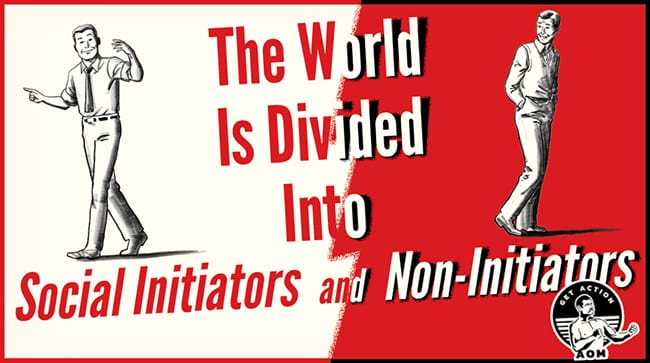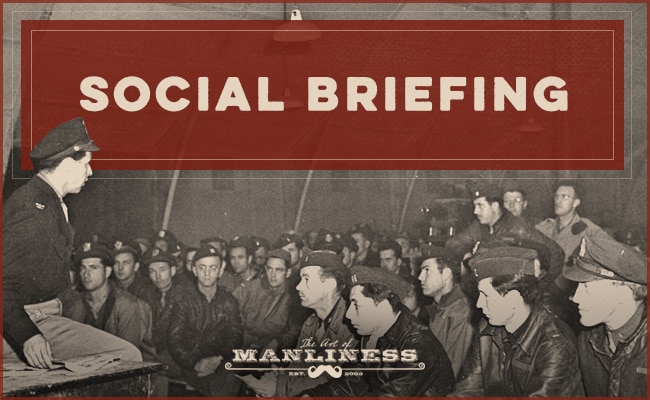
Plenty of people have been talking about the rifts between liberals and conservatives and between men and women.
But there’s a fault line out there that is just as divisive and may be responsible for more relational estrangement than any other — despite the fact that it remains almost entirely unrecognized and understood:
The division between social initiators and non-initiators.
Every time we re-share a past article — “The 3 Reasons Friendships End” — on our Facebook page, the most common and most liked comments it receives run something like this:

Joel is representative of the social initiators of the world. Comprising perhaps half the population, these are the folks who make the first moves in getting to know a new acquaintance, send texts to check in with people, reply to messages they receive promptly, organize hangouts, and host parties.
Joel is frustrated by those folks who are happy to receive texts and invitations, but are far less likely to offer them themselves. This is the other half of the population — the world’s social non-initiators.
That friction would arise between these two groups is no surprise.
Social initiators do the lion’s share of legwork in keeping the gears of relationships turning; as a result, they often eventually become resentful about the lopsided nature of this division of labor. Because friendships are unique amongst relationships in lacking clearly defined expectations, including the expectation of talking about unmet expectations, the social initiator is unlikely to bring up his grievance with his non-initiator friend. Instead, he’ll just decide, “Well, if he doesn’t care, then I don’t care!” and stop making an effort to keep the relationship alive.
The social non-initiator, meanwhile, is typically blissfully unaware that his initiator friend is feeling resentment. One day, he may just notice that the friend has stopped reaching out and that the friendship has eroded.
While the friction between social initiators and non-initiators may be understandable, it is not inevitable. Both parties can accept and even celebrate each other’s differences, and can happily co-exist in long-lasting friendships, if they both come to understand certain things about each other:
What Social Initiators Need to Understand About Non-Initiators
Being a non-initiator is a personality disposition, not a moral failing. Social initiators tend to carry a sense of righteousness about the effort they make in relationships. Their thinking runs like this: relationships are good things, so caring about them a lot means you’re a good person. Conversely, making less of an effort in relationships means you’re more self-centered and a bad person.
But a tendency towards social initiation is more akin to liking a certain food, than it is a moral virtue.
Almost universally, social initiators are born, not made. Their inclination towards social investment is not a trait that they intentionally worked for and developed; it’s just naturally how they are. And they are not more inclined to reach out to others because of the superiority of their character, but because they find interpersonal interactions especially rewarding. Most social non-initiators very much enjoy relationships too, but initiators get more of a rise out of them. Thus the latter’s drive to make social overtures is not purely altruistic, but also self-interested.
If someone who loves avocado is always willing to pay extra for it at restaurants, we don’t celebrate that as a virtue, and we don’t condemn someone who feels neutrally about avocado for not choosing to do likewise. In the same way, social initiators should view someone’s lack of social initiation as a matter of taste, as an inborn personality disposition, rather than a moral failing. Different people find interpersonal interactions a little more or less delicious, and where someone falls on that spectrum does not make them a better or worse person.
So too, while social initiators are apt to pat themselves on the back for their relational efforts, it is well for them to remember that personality exists as a coin with two sides: one light and one dark. Good traits are almost invariably attached to less desirable ones, and the initiatory trait is frequently part of a constellation that also includes a propensity toward being moody, controlling, critical, and unforgiving. Admit it, if you’re a social initiator, while you’re great about making an effort to sustain relationships, you’re a bit of an a-hole in other ways, aren’t you?
When it comes to the dynamics of personality, it’s necessary to humbly dismount from one’s high horse.
Non-initiators have their own traits worth appreciating. By the same (two-sided) token, social initiators need to become cognizant that the same trait that frustrates them in their non-initiator friends is almost always attached to the very things they love about those people. Those who lack the initiatory personality trait are very often fun, positive, warm, charismatic, non-critical, and forgiving. They may not throw parties, but boy, are they a good guest at them. They may not initiate hangouts, but they are a supremely enjoyable companion when you do.
Since you’re rarely going to get one side of the coin without the other, instead of focusing on what a non-initiator lacks, initiators need to concentrate on the many wonderful things non-initiators bring into their lives.
A lack of reciprocation may, or may not, mean someone doesn’t like/care about you. Reciprocation is a large part of how we decide to act toward someone. How you act towards me tells me how I should act towards you. Thus, one of the most frustrating parts of being friends with a social non-initiator is that it makes the inherent ambiguity of friendship even more ambiguous. It makes it difficult to know if someone is interested in forming or maintaining a friendship, or not. If you’ve invited someone over for dinner twice, and they haven’t reciprocated the invitation, is that because they don’t like you, or because they’re just not someone who initiates social events?
It could be either, but don’t assume it’s one or the other. If someone doesn’t often initiate hangouts, but seems enthusiastic about your invitations, sincerely remarks upon what a good time they have when you get together, and suggests another time you could meet when an invitation doesn’t fit their schedule, they probably do like you and are just not social initiators. If someone doesn’t do these things, they probably aren’t interested in developing or sustaining a relationship.
You can come to see social initiation as a vocation and form of service. While social initiators may be more intrinsically inclined to make relational efforts because they find interpersonal interactions more rewarding, that doesn’t mean these natural motivations will always sustain them. Sometimes the effort still feels quite effortful, and initiators become frustrated that they seemingly give more than they get back. It’s at those times that initiators tend to get resentful about having to carry more of the interpersonal weight.
In such moments, initiators should take heart that in keeping the gears of relationships turning, they’re rendering a vital service to mankind. Being an initiator is a kind of vocation you’re called to. You can be the person who sustains that which is most meaningful in life. You can be the person who facilitates life-changing conversations, fosters good times, and creates the memories people will cherish most. Take up the yoke of social initiation and carry it forward proudly; you’re adding something truly valuable to the world.
What Social Non-initiators Need to Understand About Initiators
In many ways, social non-initiators have an easier row to hoe in building a bridge with initiators than vice versa. But this makes sense, since inasmuch as there is tension between the groups, it is almost entirely generated on the initiator side of things.
Initiators need effusive affirmation that their interpersonal overtures are welcome. Because people base how they act on reciprocity, and because non-initiators don’t consistently reciprocate initiators’ interpersonal efforts, initiators will be confused as to whether they should continue to make such efforts or not. It makes them feel dumb to keep reaching out to someone when they’re not reaching back.
While a non-initiator may not ever reciprocate an initiator’s overtures on an equal basis, the former can greatly ameliorate the latter’s frustrations and insecurities by effusively affirming and appreciating their efforts (if such efforts are indeed welcome). They can literally say, “I’m not very good at initiating these hangouts, but I really appreciate that you are. I really enjoy them.” This will go a long way in making an initiator feel motivated and secure in continuing to reach out to a non-initiator.
You should make an effort to mitigate your natural bent, at least a little. Friendships work to the extent that each person comes to appreciate and accept the differences in the other, while also making an effort to meet the other person where they are.
Personality is not absolute destiny. While a non-initiator may never have the same inherent drive to instigate social interactions that initiators do, they can, now and again, override their natural instincts and intentionally push themselves to catalyze a reach out/hangout. Just like someone can push themselves to exercise on a day they don’t feel like it. A non-initiator’s efforts needn’t match those of their initiator friends on a 1:1 basis; even being the catalyzer once every ten times can be enough to satisfy an initiator friend and let them know the liking and desire to continue the relationship are mutual.
Many, many friendships have ended because social initiators and social non-initiators have failed to understand where each other was coming from. But these two groups needn’t be at odds; take this PSA to heart, share it around, celebrate what each type of person does well and brings to the table — and this is one rift that can actually be mended.



